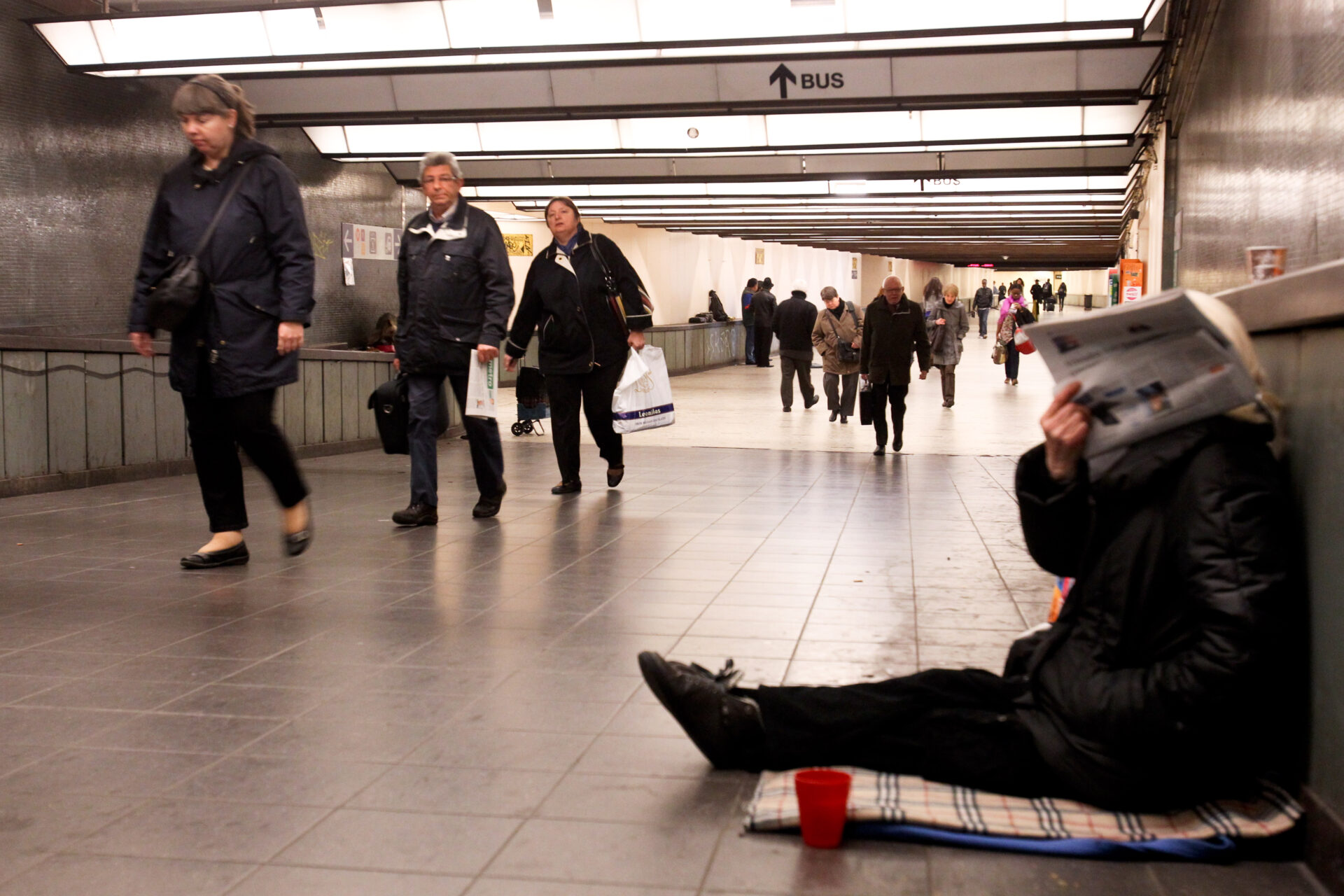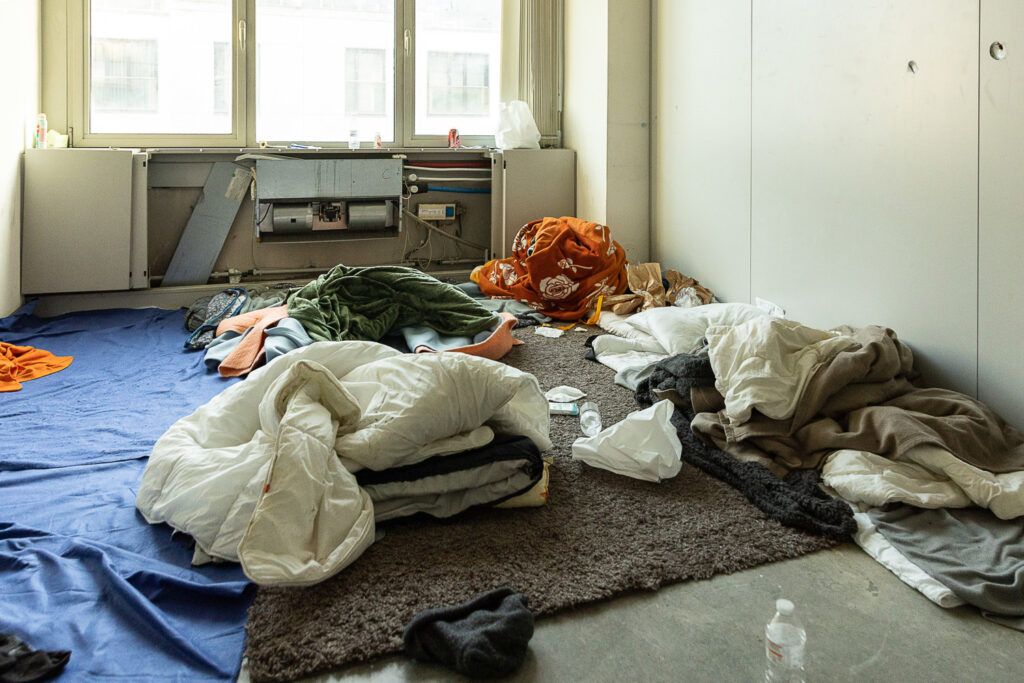Belgium's homeless sector ceased all work between 11:00 and 12:00 on Wednesday. The mobilisation – the sector's first in five years – aimed to highlight major challenges homeless services are facing and called for governmental officials to take urgent action.
The 60 or so organisations that took part have written an open letter to Prime Minister Alexander De Croo (Open VLD) and Brussels Capital Region Minister-President Rudi Vervoort (PS). The letter outlines four key issues and proposes four potential solutions.
"In a context where 2,144,000 Belgians, or 18.7% of the population, are at risk of poverty or social exclusion, it is imperative to take action," they state.
"This alarming situation is exacerbated by a constant increase in the number of people calling on help and support services. As a result, existing care facilties have been saturated for several years now despite an increase in the number of places available."
According to the same Statbel data, poverty threatens 415,000 people in Brussels (34% of the population), 7,000 of which are already homeless or poorly housed. This represents an increase of almost 20% in two years according to Bruss'help figures from October 2022.
Main challenges
The sector condemns the ongoing "saturation of all emergency reception and integration facilities," worsened by the national policy of refusing asylum seekers, in place since 2021. They also point to a lack of access to housing for vulnerable people as a reason for this saturation of services.
This situation feeds a "competition amongst homeless individuals" and between organisations themselves. Teams are often forced to make difficult decisions, assisting one person at the expense of another.
The associations decry growing violence in aid and accommodation facilities, directed towards residents and staff alike. Violence is in part produced by the "destructive" competition and ensuing frustration felt by affected individuals.
Belgium's homeless population is characterised by addiction, violence and mental health issues. "Crisis after crisis, leaving no respite for the teams on the ground," the letter reads. The often tense atmosphere has made burnout widespread among workers, who deal with psychologically challenging situations as well as staff shortages due to recruitment difficulties.

A homeless person in the Central station Metro stop. Credit: Belga / Virginie Lefour
Proposed solutions
To tackle these issues, the signatories underline the fundamental importance of providing affordable housing. This will allow people living in precarity to look towards the future, making housing an essential part of any kind of durable solution.
Access to housing should be followed by ensuring respectful reception for all, prioritising the most vulnerable where necessary.
The organisations also request better planning and anticipation for future crises. "Homelessness is not, by definition, a crisis," they explain. "We need to move away from a permanent crisis management approach, which exhausts resources and burns up the energy needed to draw up a real plan to end homelessness."
Finally, the sector is calling for a stronger workforce with enhanced recognition. Structural funding, automatic funding indexation and the timely deliveries of subsidies can all help to achieve better working conditions.

